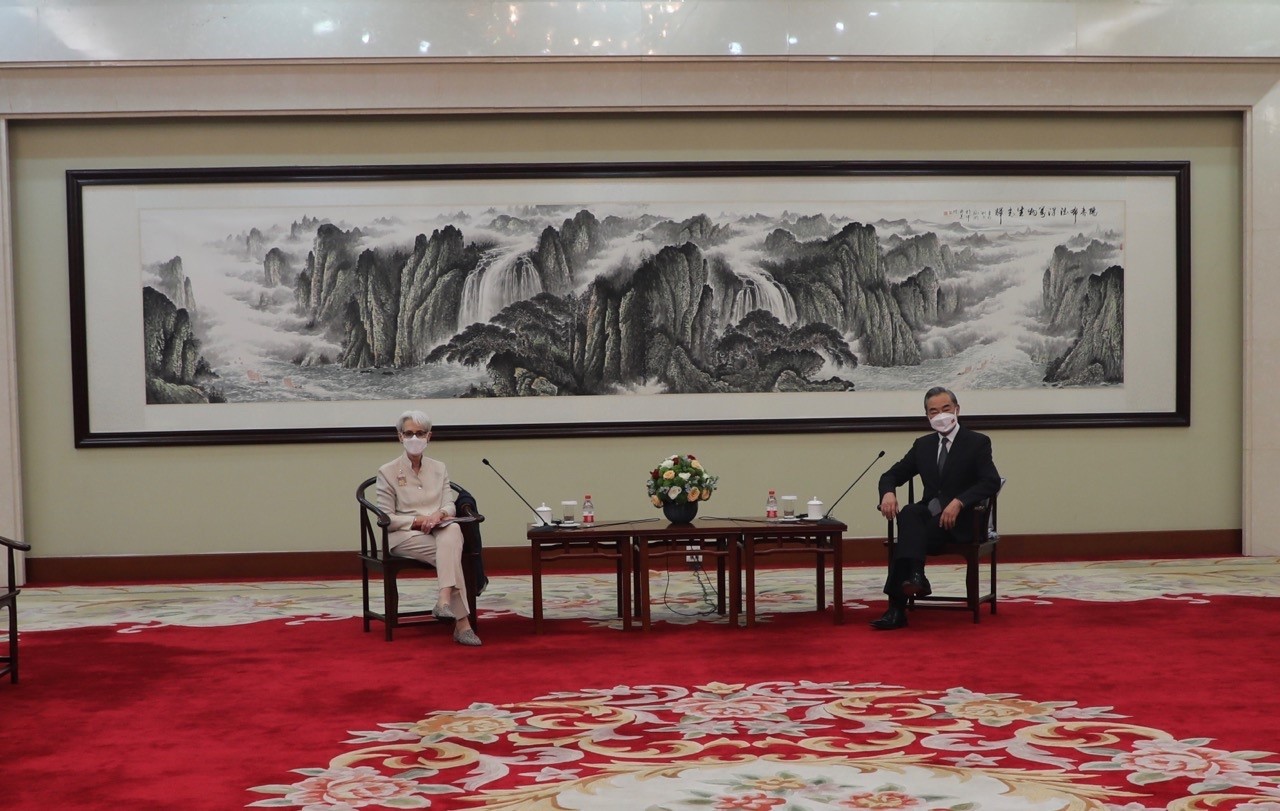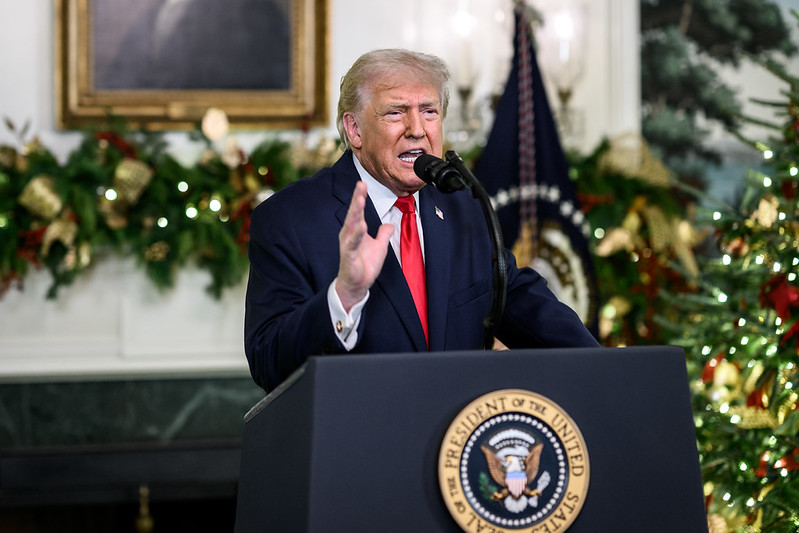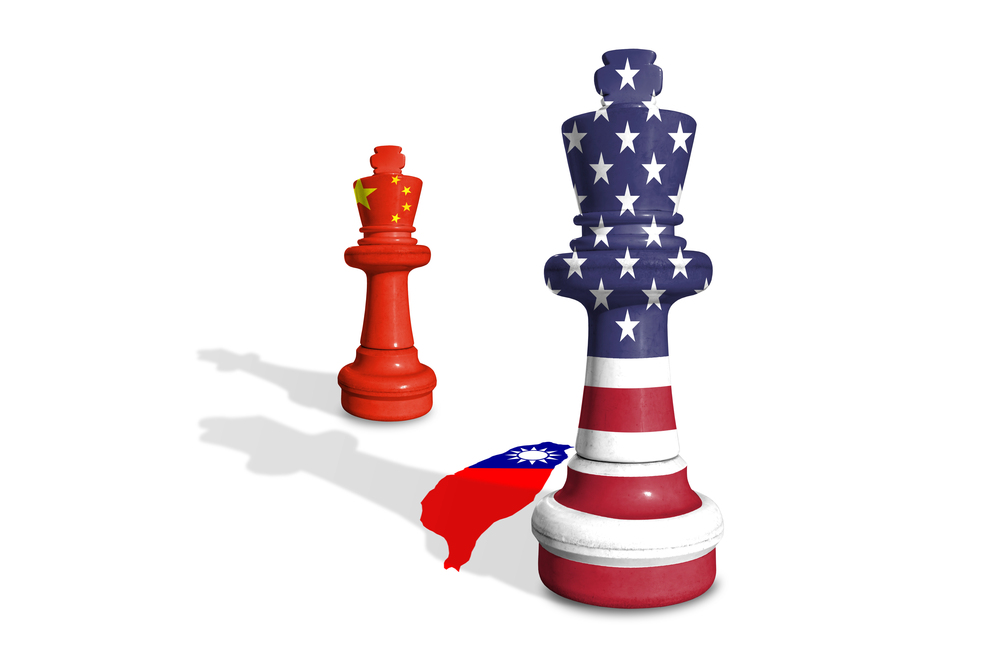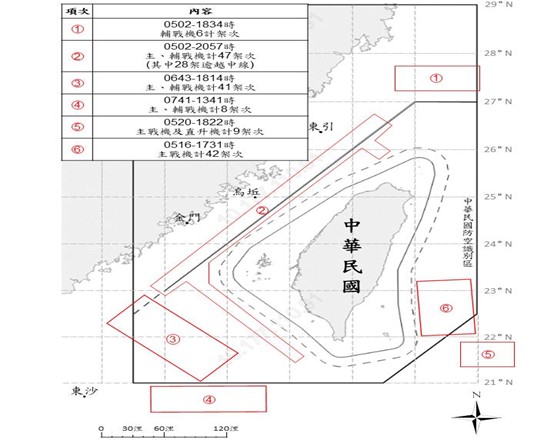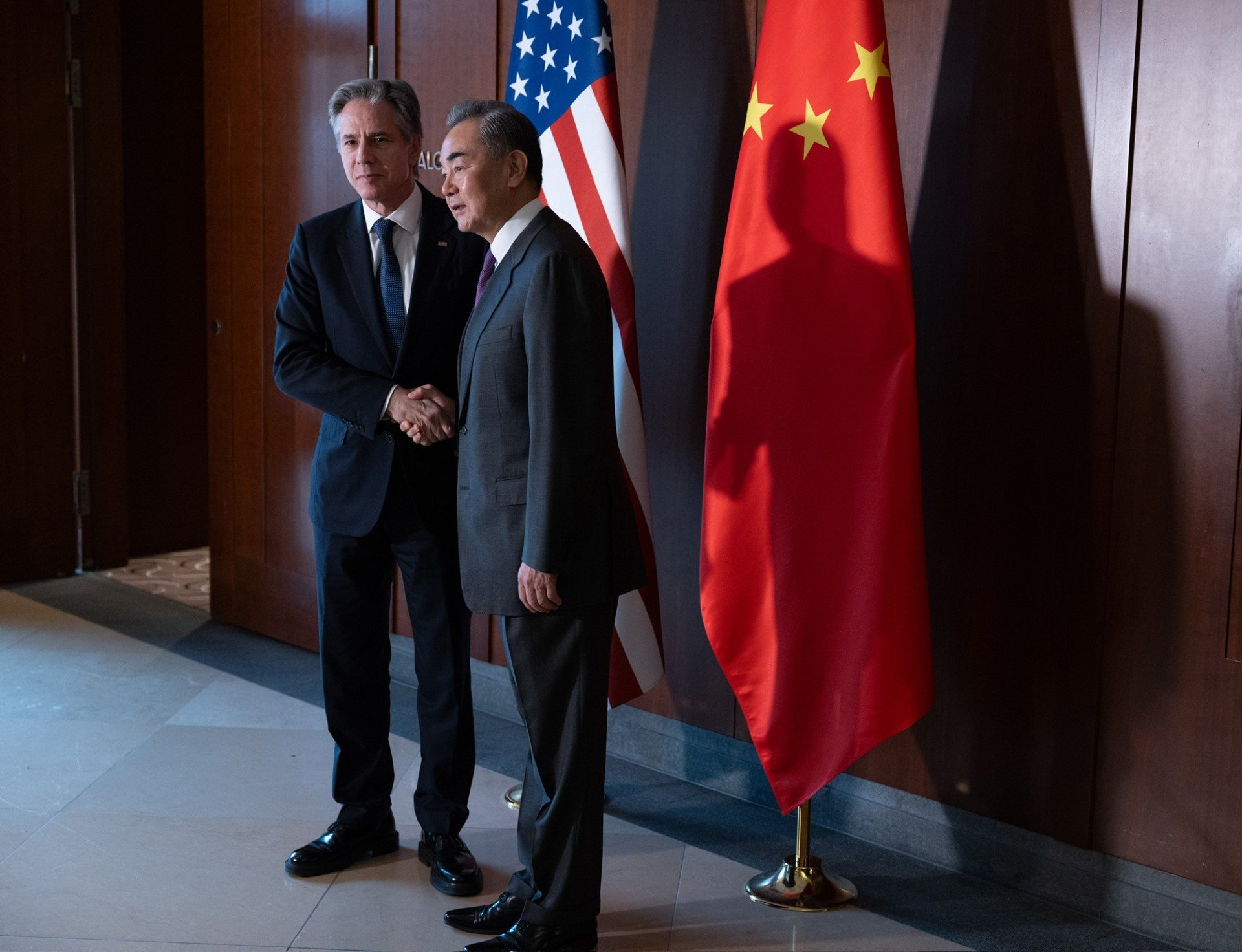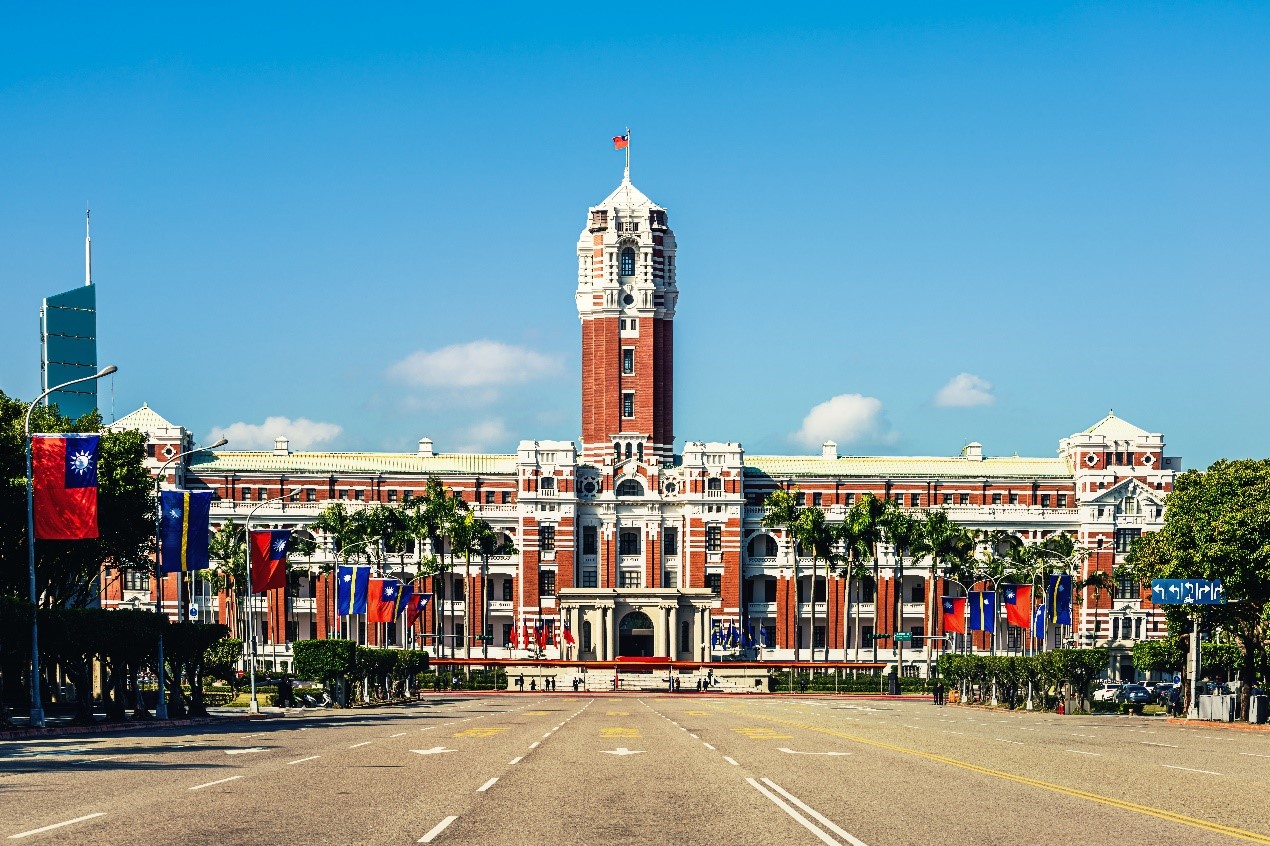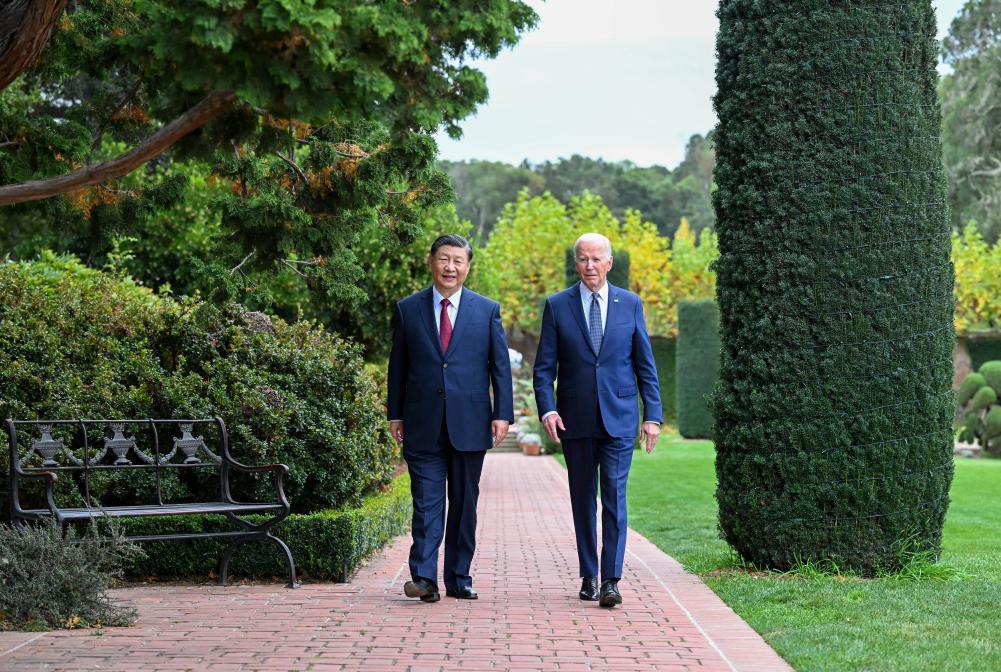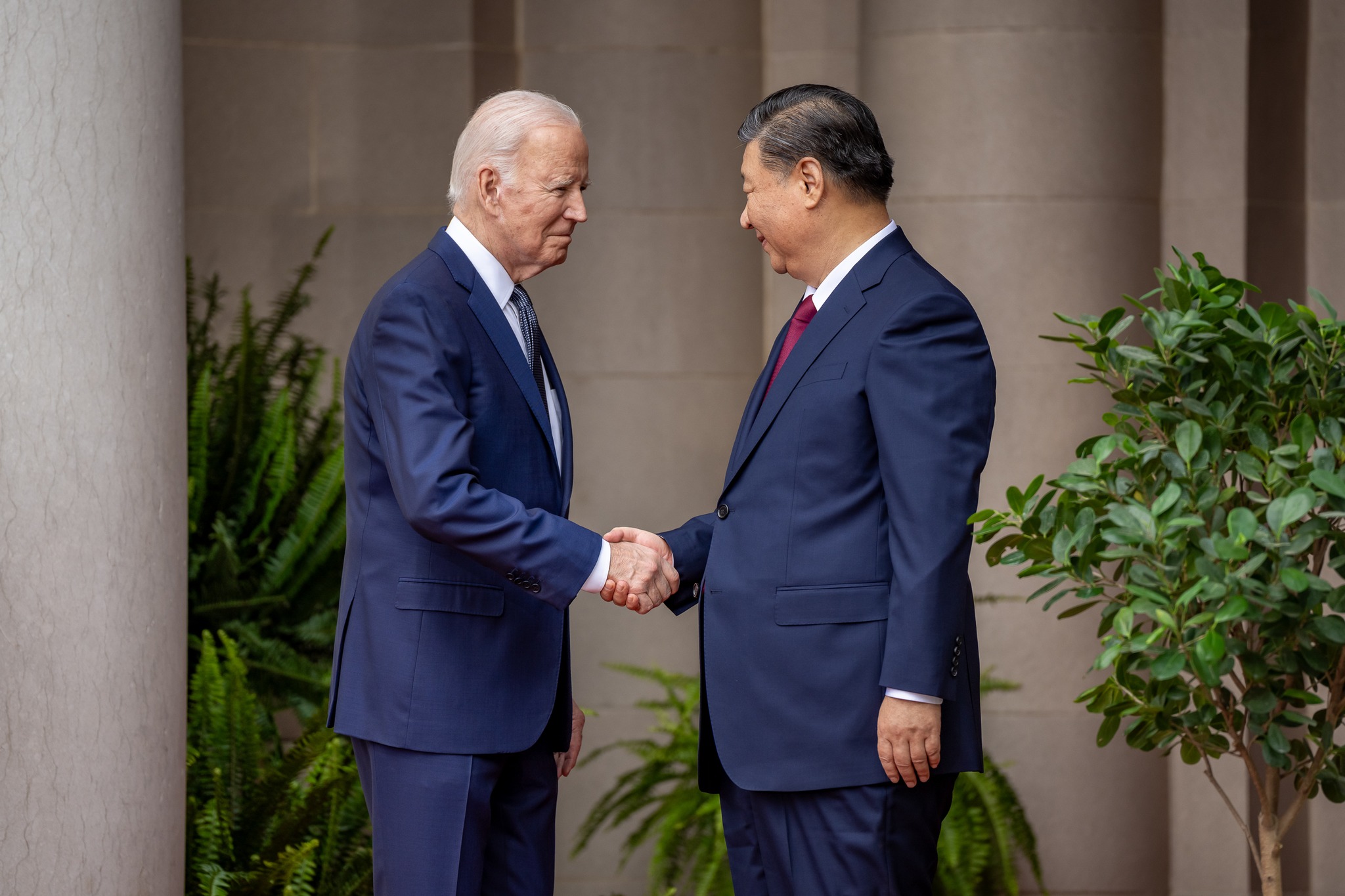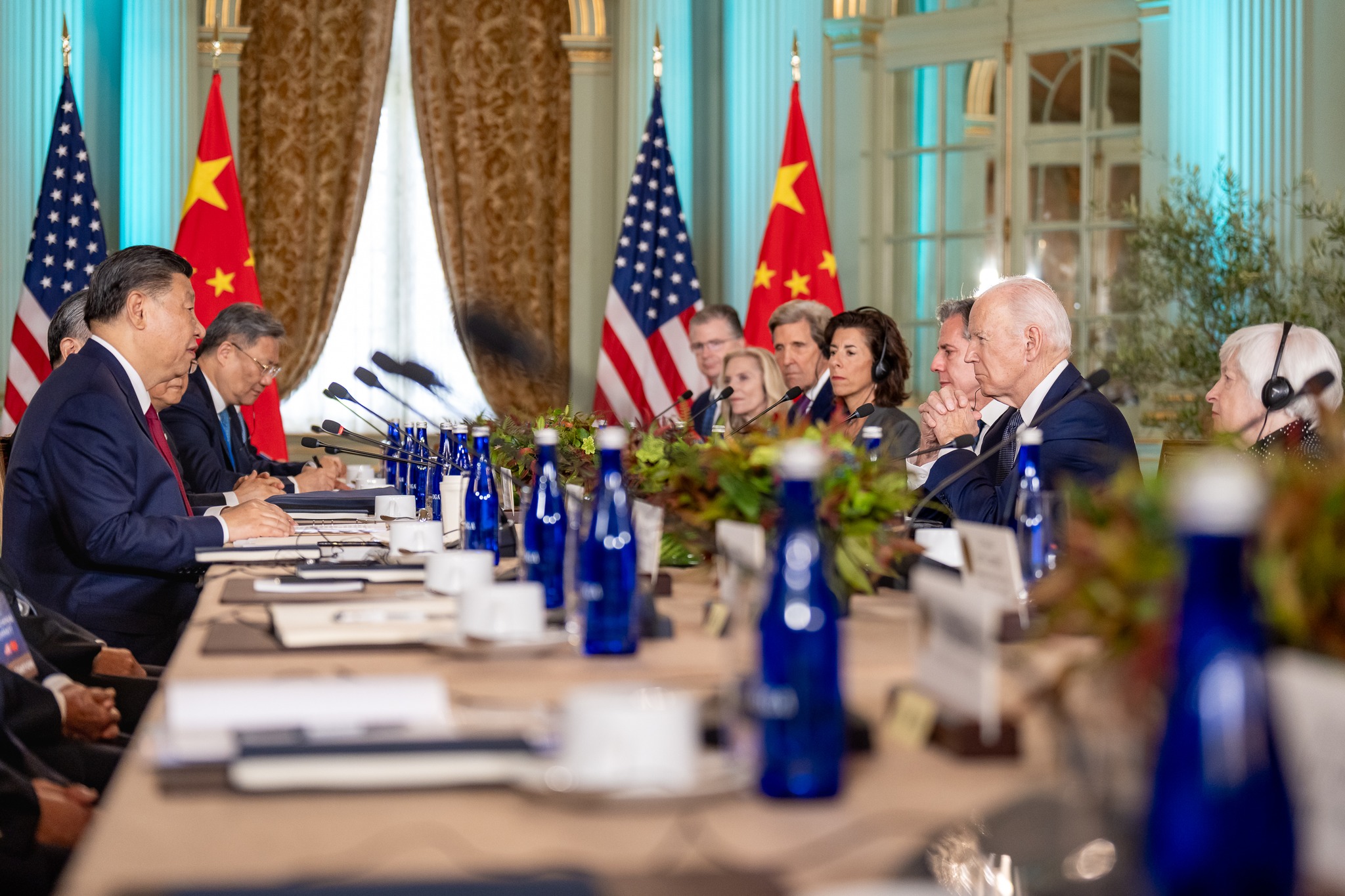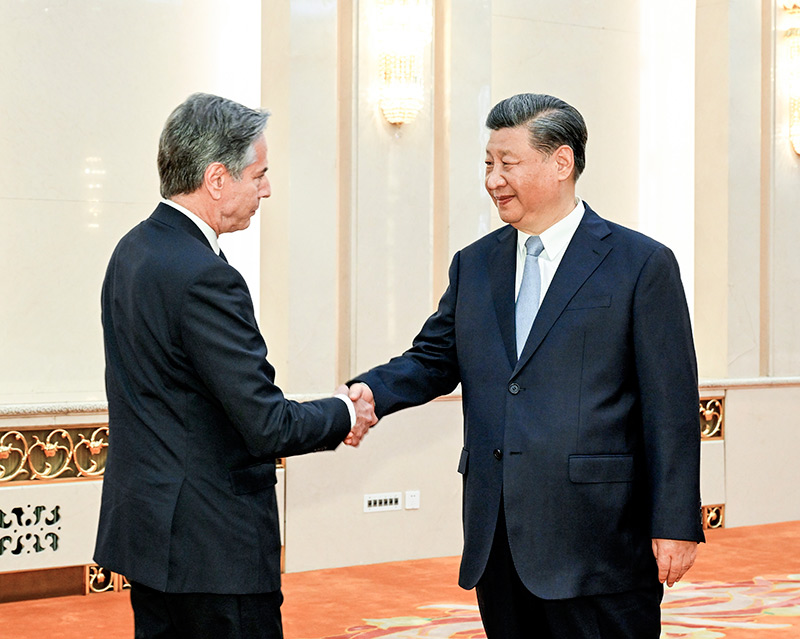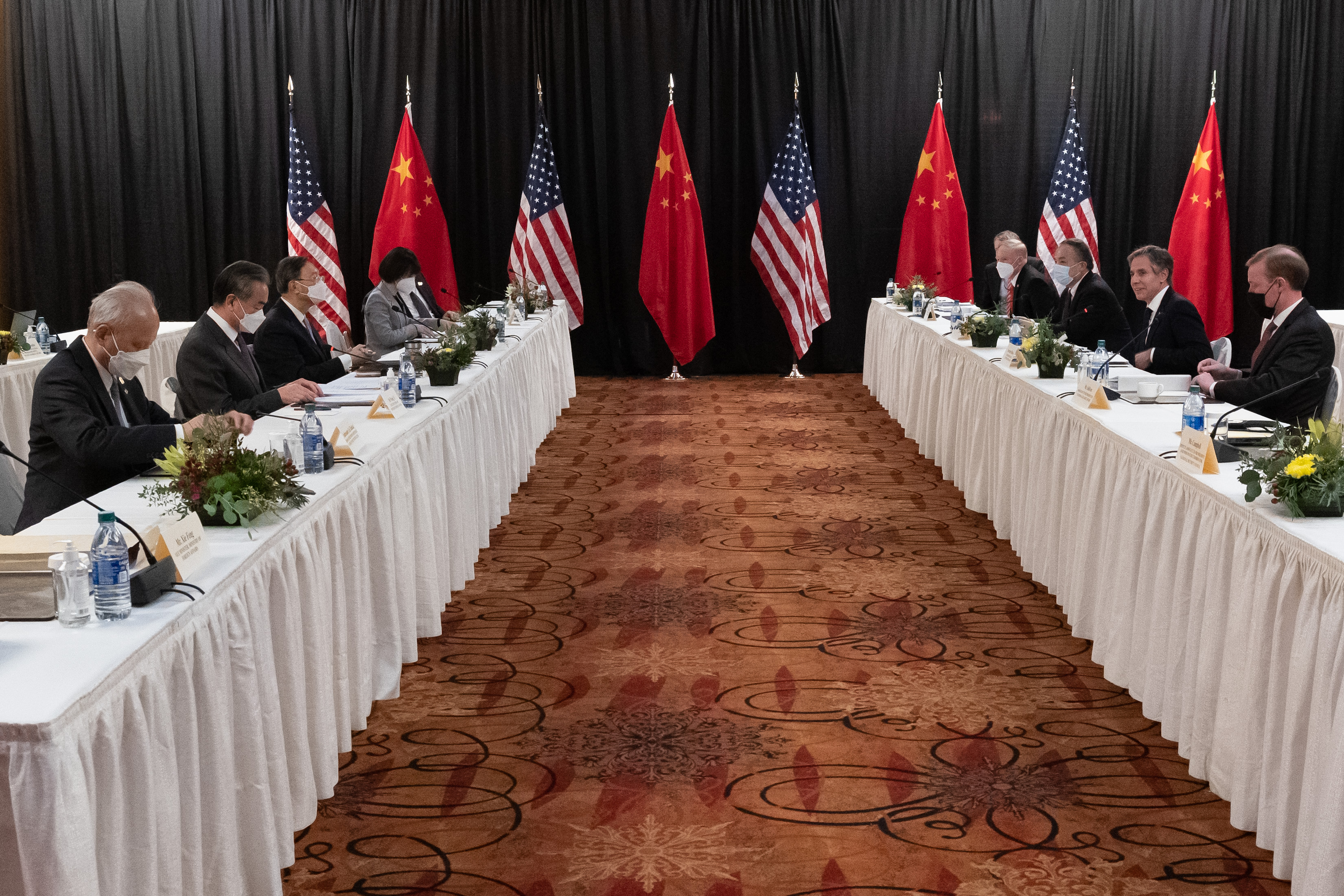Wendy Sherman’s China Visit Highlights Irreconcilable Gulf between Beijing and Washington
China and the U.S.-led international order seem to be heading in opposite directions. Increasingly, Beijing makes no secret of the fact that it regards the longstanding international order as an affront to its dignity and an instrument meant to curtail its great power ambitions.
Picture source: Wendy R. Sherman, July 26, 2021, Twitter, https://twitter.com/DeputySecState/status/1419613445029249026/photo/1
Prospects & Perspectives 2021 No. 38
Wendy Sherman’s China Visit Highlights Irreconcilable Gulf between Beijing and Washington
By J. Michael Cole
July 30 2021
After much uncertainty on whether the visit would take place at all, U.S. Deputy Secretary of State Wendy Sherman finally found her way to China on July 25-26 for meetings with senior Chinese officials, among them State Councilor and Foreign Minister Wang Yi and Vice Foreign Minister Xie Feng. As with the much publicized—and confrontational—U.S.-China summit in Anchorage, Alaska, in March, Sherman’s encounters in Tianjin underscored the fact that the two superpowers still have a long way to go before, if ever, they can reconcile the huge gap that lies in their outlook on matters such as human rights and international law.
Four months after the ill-tempered talks at Anchorage, the disconnect between the two countries continues to seem unbridgeable. Time and time again since it assumed power in January, the Biden administration has emphasized the need to set differences aside to facilitate cooperation on the greatest issues of our times, from climate change to the COVID-19 pandemic, counternarcotics, nonproliferation, and regional concerns including North Korea, Iran, Afghanistan, and Myanmar. “There are some things that rise above specific differences that are the global responsibility of great powers,” Sherman said in an interview after her meetings with Wang and Xie.
Beijing’s response, in turn, has been to argue that the U.S. cannot expect cooperation on such issues as long as it continues to “interfere” in China’s affairs and “suppress” its development. The main bone of contention remains U.S. expressions of concerns, both public and private, over a range of issues, including “actions that run counter to our values and interests and those of our allies and partners, and that undermine the international rules-based order.” During her exchanges with her counterparts, Sherman expressed U.S. concerns over human rights, particularly the crackdown in Hong Kong, crimes against humanity in Xinjiang, abuses in Tibet, the assault on press freedoms, cyber attacks, the Taiwan Strait, the East and South China Seas, the kidnapping of foreign nationals, and Beijing’s continued refusal to allow a second-phase investigation into the origins of COVID-19.
Responding to Sherman’s calls upon China to respect rules that the U.S. and its allies maintain should govern international relations, Xie countered that the U.S. side’s so-called “rules-based international order” is in fact designed to benefit itself at the expense of others, to hold other countries back, and to introduce “the law of the jungle.”
With these remarks, Xie made it clear that Beijing continues to regard the current rules-based international order in zero-sum terms, as a system that was erected when China had little influence and that is now being utilized to surround and contain a nascent superpower. Xie, of course, self-servingly omits the fact that the Republic of China, which emerged from World War II on the side of the Allies, did play a role in setting up the very international rules that it now deplores. Commenting after her meetings, Sherman also stated that “human rights are not just an internal matter, they are a global commitment which [China] signed up for” under the U.N. Universal Declaration on Human Rights.
The vice foreign minister also used the usual tactic of moral equivalence to deflect U.S. criticism by issuing a “list of U.S. wrongdoings that must stop” and a “list of key individual cases that China has concerns with.” Amid souring relations with Australia in 2020, Beijing had resorted to a similar method when it issued a list of grievances aimed at Canberra. It has done so again this year, with a campaign intended to expose the human rights violations of countries like Australia and Canada, countries whose response to recent and past crimes have, unlike China, at least been acknowledged by the governments in question.
Wang, meanwhile, urged the U.S. to drop its “arrogance and prejudice” and return to a rational and pragmatic China policy. In other words, to end its criticism of China’s destabilizing behavior on the international stage and its rampant human rights violations at home. The U.S. side, he added, needs to pay serious consideration to make correct choices as to whether the bilateral ties will head to confrontation or improvement.
This second round of high-level talks between U.S. and Chinese officials under the Biden administration bodes ill for the future. China and the U.S.-led international order seem to be heading in opposite directions. Increasingly, Beijing makes no secret of the fact that it regards the longstanding international order as an affront to its dignity and an instrument meant to curtail its great power ambitions.
This sentiment has also manifested itself in the greater willingness of Chinese officials and the Chinese public to believe wild conspiracies about foreign media reporting on China, from accusations of prejudiced reporting on the disaster in Zhengzhou, Henan Province, in late July to how photos of Chinese athletes competing at the Olympics in Tokyo are selected to put them in an unfavorable light. Chinese with large followings now even claim that the unprecedented flooding in Henan was caused by a “weather weapon” either deployed by the U.S. or Taiwan, reportedly delivered when a U.S. Air Force C-146A Wolfhound landed at Taipei International Airport (Songshan) on July 15.
More and more, China is starting to resemble Germany in the years leading up to World War I: continually angry, devoured by paranoia, and convinced that the world is arrayed against it. Unable to comprehend that its own destabilizing behavior is the cause of what, to Beijing’s eyes, looks like containment, the resulting anger only leads the regime to double down on that behavior, which can only create a feedback loop and further harden differences. Rather than admit that a correction course is in order, Beijing sees more threats as the appropriate response, convincing itself of the necessity of challenging—and reorganizing, if necessary—the very international system it regards as an impediment to its rightful place. Given what we know about what resulted from such a mindset leading up to August 1914, we can only hope that leadership will emerge in Beijing which realizes that the current direction of things is leading us dangerously close to the abyss.
The U.S. and its allies are rightly refusing to back down in calling upon China to behave as a responsible stakeholder. While tampering their criticism of Beijing’s egregious conduct could bring bilateral ties back to a point where the two sides can discuss collaboration, such a measure would only bring temporary respite. China’s destabilizing behavior would continue, freed at last of international oversight, until it inevitably sparked a new round of dispute over human rights or brinkmanship, and new threats of Chinese conditionality for its (supposed) collaboration on issues of global interest.
(J. Michael Cole is Senior Fellow at Global Taiwan Institute, Senior Fellow at Macdonald-Laurier Institute, and Senior Fellow at Taiwan Studies Programme, University of Nottingham)


